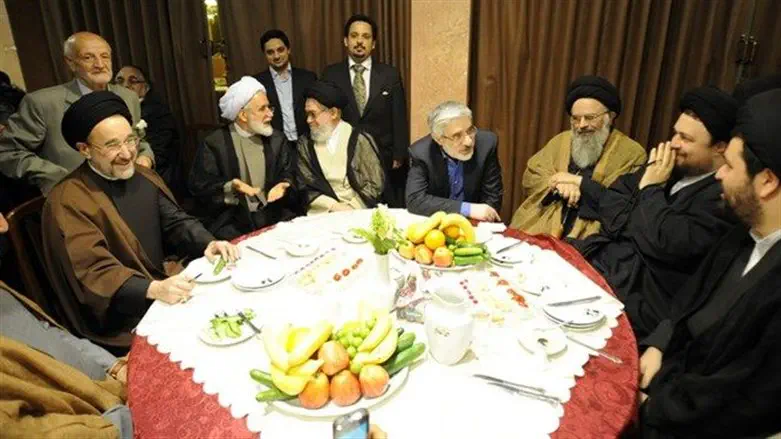
Donald Trump’s Middle East policy resembles a magic show—full of spectacle but lacking real substance. Like an illusionist who transforms a dove into a handkerchief or a rabbit into a bouquet of flowers, nothing truly changes by the end of the performance, yet the audience leaves entertained and satisfied. This metaphor aptly captures Trump’s current approach to the Islamic Republic of Iran.
Within the White House, there appears to be no genuine will or strategy for regime change in Tehran, nor any serious intention to confront the criminal and terrorist nature of the ruling clerics. The diplomatic talks, too, amount to little more than political theater; negotiations have clearly stalled, and their failure is evident. Meanwhile, the Iranian regime continues its policy of attrition, dragging out the process, while Trump, in turn, leverages the appearance of engagement to strengthen his image in the face of Democratic opposition.
However, for Israel—whose survival and security are non-negotiable—this political showmanship cannot replace the need for a concrete strategy and decisive action in the face of regional threats.
Iran’s Foreign Minister, a member of the Quds Force, has submitted a letter to the United Nations warning of a potential Israeli strike on nuclear facilities linked to the Islamic Revolutionary Guard Corps (IRGC). It is believed that between 9 and 12 nuclear sites could be targeted by Israel. For years, Israeli intelligence agencies have been recruiting local Iranian collaborators and securing the cooperation of individuals within Iran’s military and intelligence organizations. Many of these collaborators have aided Israel—often in exchange for money—in eliminating high-value targets.
This deep and multi-layered infiltration by Mossad into the Islamic Republic's inner circles has deeply alarmed the regime. It has enabled Israel—and by extension, the United States—to identify and photograph nearly all nuclear and missile facilities in Iran, and even receive real-time intelligence. With the collapse of the pretense of diplomatic negotiations, the Russo-aligned Islamic Republic is now resorting to propaganda, threats, and manufactured crises—efforts that will ultimately prove futile.
Here are some recent statements from the regime:
- IRGC Spokesperson: “If Israel attacks, it will face a devastating and decisive response.”
- Army Commander: “Any attack will be met with severe punishment.”
- Foreign Ministry: “Uranium enrichment is our red line.”
- Parliament Member: “Our fingers are on the trigger. We will plunge the region into chaos and lay it to waste.”
This kind of erratic, belligerent, and meaningless rhetoric is all too familiar in global history. Every dictatorship facing its demise has resorted to such desperate declarations. The core fear of the Islamic Republic’s propaganda apparatus and its ruling clerical elite is not global disgrace, loss of legitimacy, or international isolation. Nor is it the activation of the UN’s "snapback mechanism" or the destruction of 9 to 12 of their nuclear sites. What they truly fear is the rekindling of a nationwide uprising by the Iranian people—a rebellion against theocratic despotism that has plagued Iran for over four decades.
One day, the Islamic Republic threatens the United States and Israel; the next, the entire Middle East. At times it claims uranium enrichment is a right of the Islamic world; at other times, it ties it to Khomeini’s violent 1979 revolution, and yet again, it calls it a right of the Iranian people. Then it agrees to talks with Trump's envoys.
Meanwhile, poverty grows, the country deteriorates, and the regime diverts resources to build nuclear facilities. Since 1979, the regime has considered itself the master and the Iranian people mere subjects of an “Islamic Ummah,” eroding Iran’s national identity and pride.
Now, it shamelessly invokes the name of the Iranian people to justify its actions. The Supreme National Security Council has reportedly instructed Parliament—largely dominated by IRGC affiliates—on how to speak about nuclear issues and negotiations with the U.S., tailoring their rhetoric to feed the regime’s propaganda machine.
But the regime’s deepest anxiety stems from the potential resurgence of widespread domestic anger and unrest—from a nation that is oppressed, impoverished, and seething with rage. These mounting political pressures have created a state of paranoia among the leadership, compelling them to keep the machinery of repression running until the very end.
The Islamic Republic lacks the capacity to endure a full-scale military confrontation with Israel or the United States. As it begins to collapse, it threatens to burn everything in its path—seeking to leave behind a scorched and broken Iran, reminiscent of the destruction wrought by the Mongol invasions.
While the regime attempts to incite chaos, it no longer has the strength or means to do so effectively. All-out war is not the same as internal repression and propaganda. There is no longer any common ground between a bloodthirsty regime and a people yearning for liberation.
Today, many Iranians take some solace in the global humiliation of their tyrannical rulers. They recognize that these 9 to 12 nuclear sites are not symbols of national pride, but monuments to the looting of their wealth—assets stolen and wasted. Their destruction would signify not a loss for the people of Iran, but a defeat for the criminal clerics who have clung to power through terror and deceit. From its inception in 1979, the regime—whether hardline or so-called reformist—has survived on the back of Islamic terrorism and has systematically plundered the nation.
Thus, the faster these nuclear sites are dismantled, the better.
Evidence suggests that the 21st century will soon witness the collapse of one of the most detested, brutal, and corrupt regimes on Earth—one that, over its 48-year history, has contributed little to the world but terrorism. Israel, more than the United States, has understood the malignant and cancerous nature of this regime and is acting to eliminate the threat it poses, even as it leaves room for the Iranian people’s uprising to take center stage.
In the end, unless Trump decides to prop it up, it is only Iran and the name of Iran that will endure—not the current regime